This is about how Islamic Relief is working with the people most affected to respond to the climate crisis. We show how in empowering communities, families and individuals to emerge out of poverty and suffering, they are better able to adapt to the challenges they face now and in the future. In the climate emergency, locally-led community based adaptation brings justice to those who have the least. ‘Adapting for Climate Justice’ shows how Islamic Relief is making this a reality.
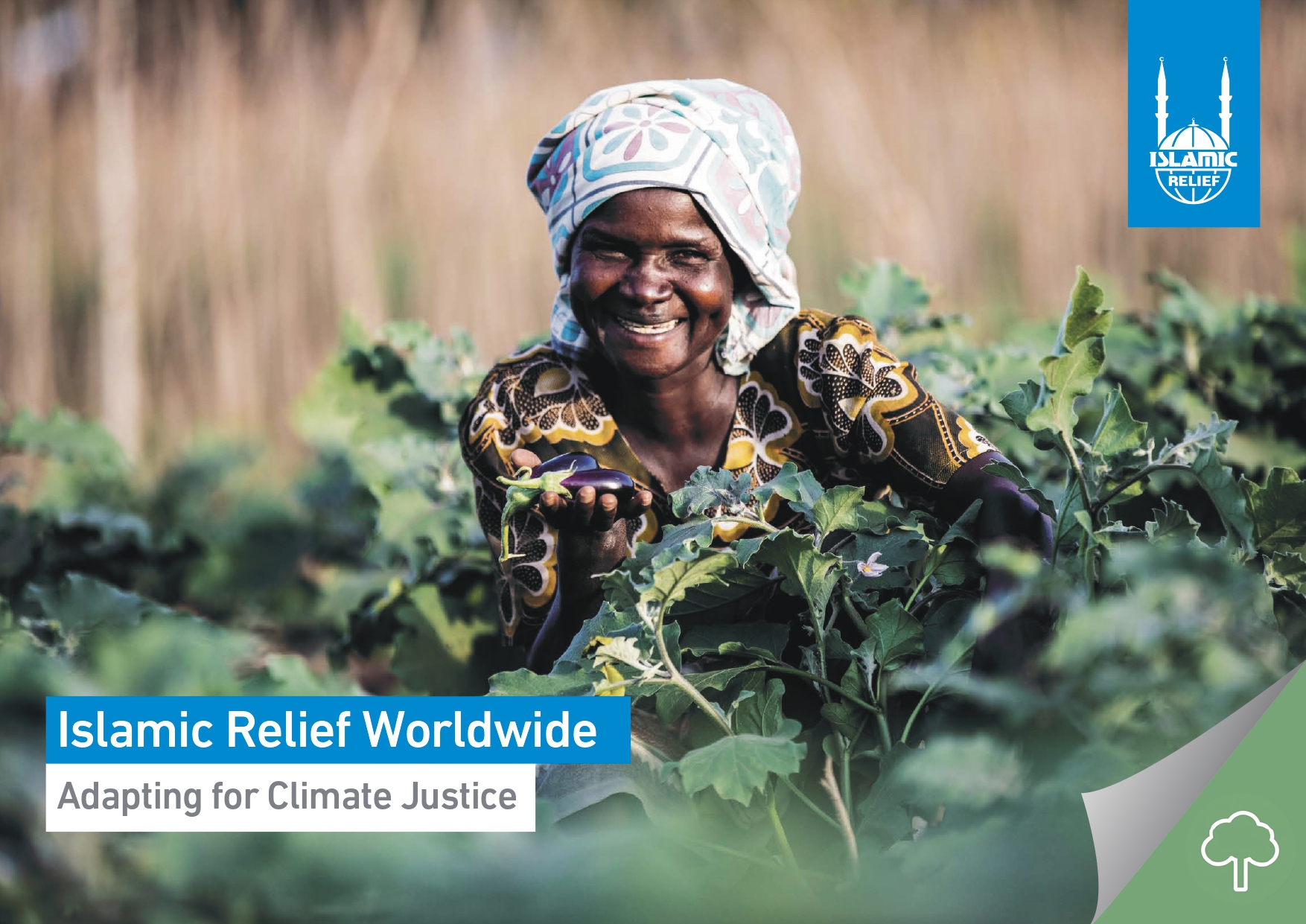
This synthesis, part 1, provides a review of good practice in the sector in relation to establishing inclusive complaints mechanisms. It examines selected agencies’ approaches to strengthening inclusion of at-risk community groups, particularly those who are discriminated against due to their age, disability, gender, ethnicity and other forms of marginalisation. It focuses on the inclusion of at-risk groups within activities relating to commitments 4 and 5 of the Core Humanitarian Standard and, specifically, the establishment of inclusive complaints mechanisms.
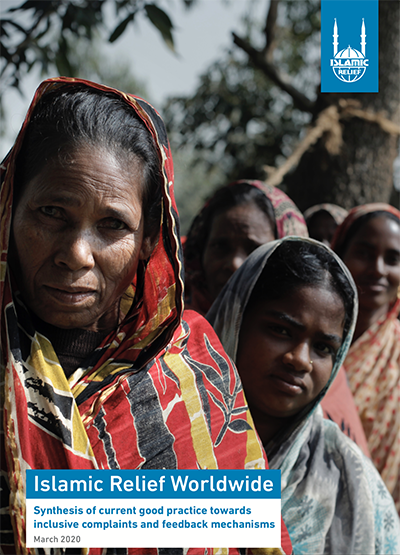
This document highlights Islamic Relief’s Triple Nexus approach and how it helps communities achieve sustainable, inclusive peace as a basis for human security with focus particularly on excluded groups in society such as youth and women. The document also includes case studies on how Islamic Relief is investing in the peacebuilding capacity of youth in Pakistan, Kenya, Indonesia and the Philippines as part of a holistic package of support to fragile communities. While the contexts in each country are different, there are some commonalities in Islamic Relief’s approach.
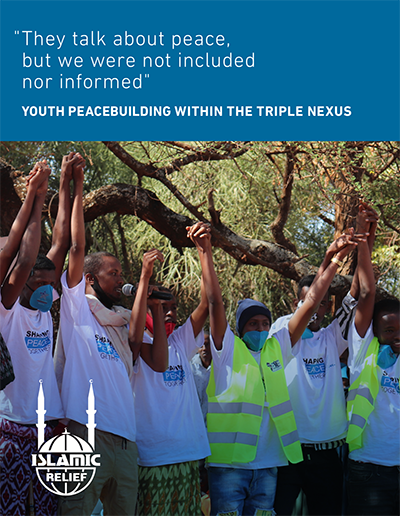
This report is a summary of a comprehensive analysis of Islamic Relief’s gender and gender-based violence (GBV) related activities and programmes from 2017 to 2019 (inclusive). It uses the framework of IRW Gender justice Policy, SDG5 on gender equality and the Islamic Gender Justice Declaration. The main purpose is to document our gender and GBV related activities to inform projects, policy and advocacy development throughout the organisation; support Islamic Relief’s gender justice commitments; and inform the development of systems, policies and processes to advance Islamic Relief’s effort to achieve gender equality.
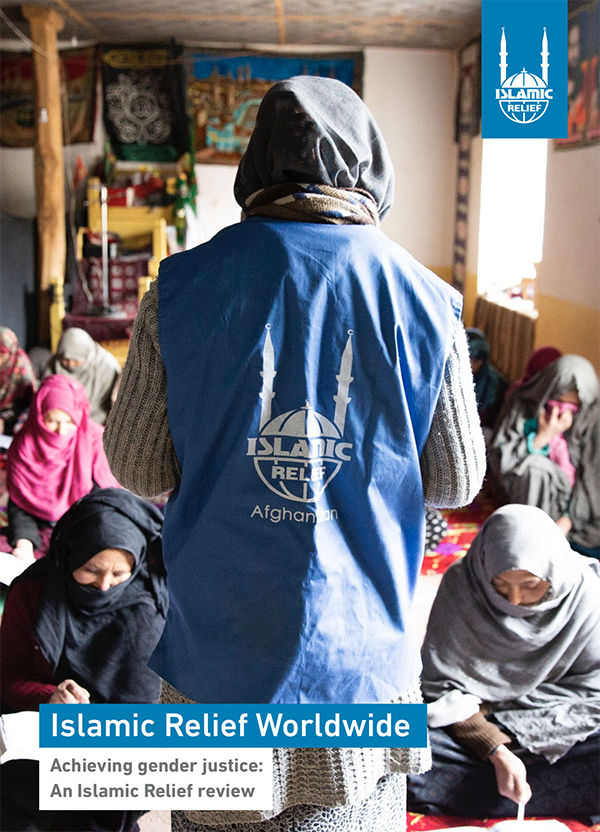
This paper focuses on approaches, lessons and recommendations for Islamic Relief and other INGOs to improve mainstreaming protection and inclusion efforts in development and humanitarian programming. It aims to advance understanding and best practice in protection and inclusion through critical reflection on Islamic Relief’s inclusive and protective programming approach. It draws on the experience of eight countries in addressing issues of inclusion, protection and sensitive approaches to accountable programming and considers learnings and challenges.
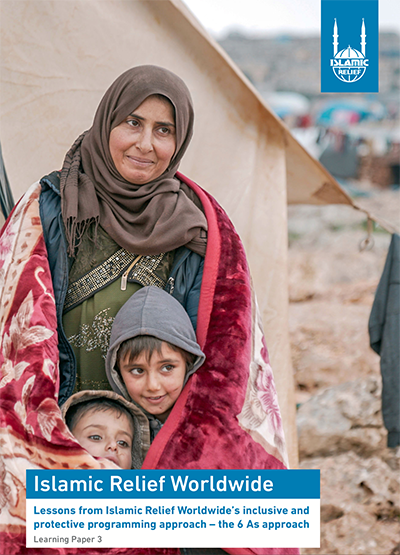
This report, updated with our key responses to date, highlights the way in which Islamic Relief partner offices are helping vulnerable communities in the west – where the pandemic has had the greatest impact – as well what we are doing to help key priority countries in Asia, Africa and the Middle East, which remain most at risk.
Our three approaches are:
1. Community engagement for promoting good practices and information
2. Supporting and strengthening health systems
3. Ensuring the longer term and secondary impacts are factored from the outset
Islamic Relief’s global response is further supported by our existing partnerships and programmes in the field which we are adapting to better support national response plans and meet local needs.
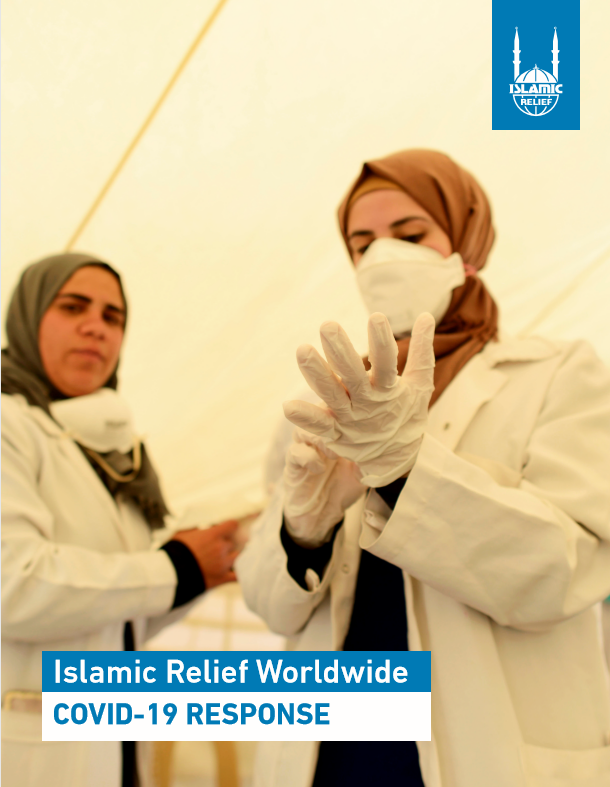
Input your search keywords and press Enter.